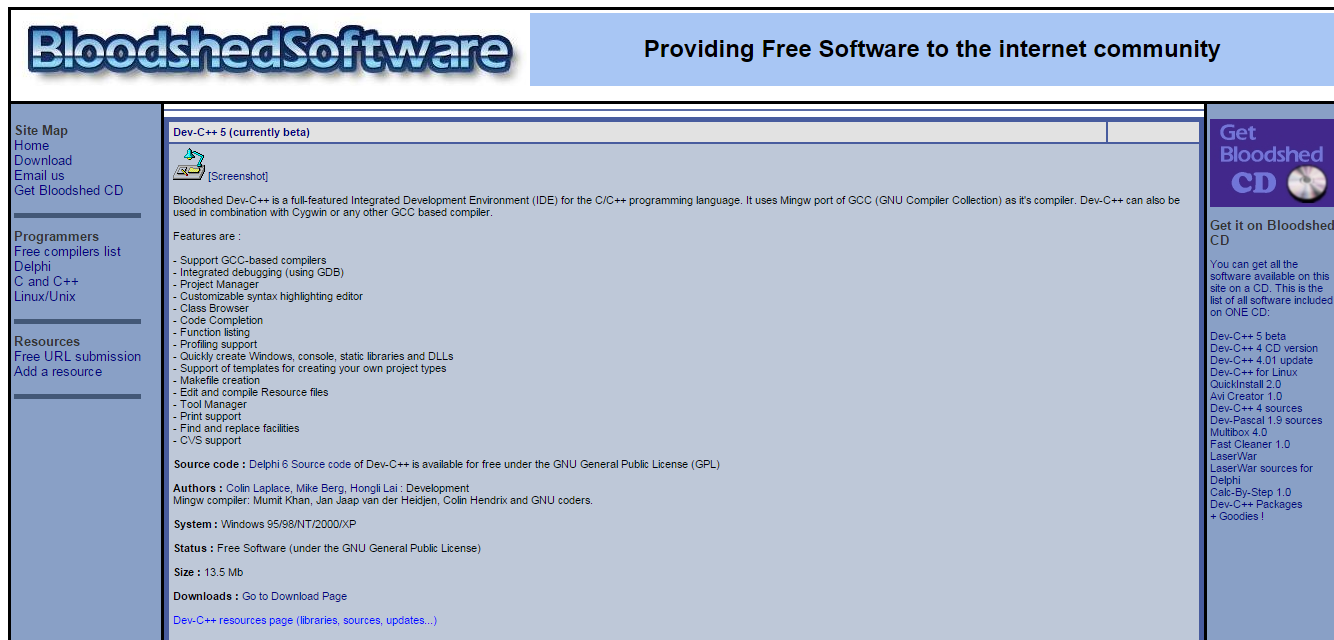Best Ide For Java For Mac
Share • LinkedIn • Facebook • Twitter 3 The feature-rich, code-centric IDEs (Integrated Development Environment) has made Java programming easier and productive. There are many IDEs that help Java developers execute rapid web application development.
Presenting the List of 5 Best popular Java IDE. As we know Our favorite & best Java IDE or code editor can become an unparalleled ally when it comes to code completion and visual assistance for debugging and building our app. Java IDEs are fancy text editors with tools and inspections regarding programming languages. Quickly and easily develop desktop, mobile and web applications with Java, JavaScript, HTML5, PHP, C/C++ and more. NetBeans IDE is FREE, open source, and has a worldwide community of users and developers.
Lexmark prevail pro705 driver for mac 10.12. Some of the notable IDEs for Java development include Eclipse, NetBeans, DrJava, JGrasp, and IntelliJ IDEA. But choosing the right one for your Java project can be quite a difficult and time-consuming task. If your organization is struggling to evaluate the IDEs and decide on one, you can consider an experienced.
Additionally, you can take a look at the Java IDE comparison below based on the most popular Java IDEs like Eclipse, NetBeans, and IntelliJ IDEA. Eclipse: Eclipse is an IDE which every Java developer uses at some point in their development journey. Eclipse provides an ecosystem of its own with a large community of developers, great documentation.
It is mainly used for building mobile, web, enterprise, desktop, and embedded system applications. Developers can use Eclipse for free open-source under Eclipse public license. Moreover, Eclipse mostly is written in Java and runs on Windows Mac OS X and Linux.
Its latest version also brought up to over 70 individual projects from software modeling to internet of things (IoT) tools as well as runtime projects. It is best known for Java programming and provides support for using many other languages for your project.
NetBeans: Leveraged by professional developers, NetBeans is one of the most powerful, open-source IDE available in the Java development space. Similar to Eclipse, it can be used for developing mobile, web, enterprise and desktop applications.
It is a multi-platform IDE and supports Windows, Linux, Mac, and Oracle Solaris. Previously, NetBeans was a part of Sun Microsystems which Oracle acquired in 2010. Best free anti virus and malware software for mac osx. Since then Oracle continually upgrades NetBeans with new enhancements and features. It offers an end-to-end development environment that helps in application development, coding, design, testing, profiling, debugging, compiling, analysis, running, and deployment. Being Java's official IDE, it supports many technologies related to Java as well as multiple programming languages. It can be a great fit for application development with Java persistence API, spring, JSP, struts, servlets, web services, and Hibernate frameworks.
It even lets you use drag and drop tools to develop a desktop application with Swing and NetBeans Platform. IntelliJ IDEA: IntelliJ IDEA is a fully featured IDE developed by JetBrains. It is a professional Java IDE offering two editions - Free community edition and an Ultimate edition.
The free comes with various features for developing Android and JVM applications. Android Studio, which is Google’s official Android application development platform, is also based on IntelliJ IDEA’s free community edition. It includes Java, Kotlin, Scala, Android, Mercurial, Groovy, Gradle, Git, SVN, SBT, and CVS support and also offers basics like code completion, deep static analysis, intelligent refactorings, debugger, test runner etc. On the contrary, the Ultimate edition has the most advanced set of features for productive web and Java EE enterprise application development. Some additional features included in Ultimate edition are: • Spring MVC framework, Spring Integration, Spring Boot, Spring Security, etc • Support for web app development languages like JavaScript, TypeScript, CoffeeScript, and others • Support for frameworks like Node.js, Angular, and React • Java EE support such as JSF, JAX-RS, JPA, CDI, etc Apart from these, IntelliJ IDEA comes with serval other features which a professional enterprise developer would require for developing complex Java application. Conclusion: Each of the above-mentioned IDEs has their own set of features, functions, and benefits.
But the decision of choosing the right IDE depends on the nature of your Java project, business and application needs, skills of your development team, and technologies used by your developers. The comparison above will provide you a fair idea of which IDE suits your requirements the best.

Also, we’d love to know your choice of Java IDE or if you already use an IDE other than the ones listed above, let us know in the comments below.
